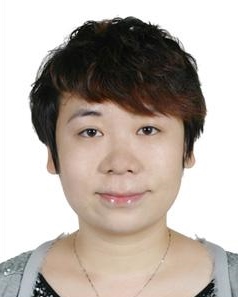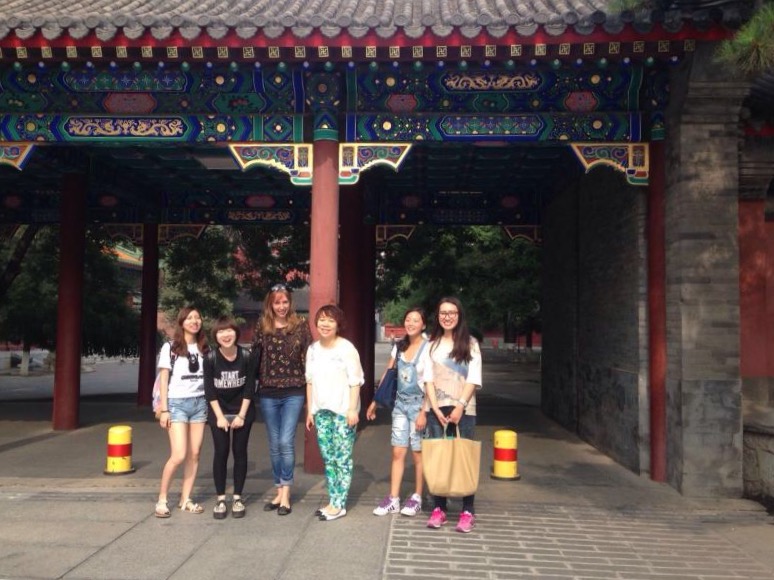|

Sisi Lin |
|

Sarah Elia
|
“I’m so nervous! I don’t know what to expect,” said Litong, a
student at Central Conservatory of Music (CCOM) in Beijing, referring to
her upcoming year abroad. Litong, along with two of her classmates,
Huan and Yiyun, will be traveling to the State University of New York
(SUNY) at New Paltz this fall semester. It will be their first time
traveling outside of Asia.
Every year, CCOM, located in the center of Beijing, sends music
therapy students to SUNY New Paltz for a 1-year exchange. There, the
students are enrolled in the Haggerty English Language Program and
courses in music therapy. Somealso have the opportunity to do an
internship in their field.
This summer, we, teachers at CCOM and SUNY New Paltz, prepared
Litong, Huan, and Yiyun for their year abroad. The following are our
accounts of what was done.
Sisi Lin, Lecturer of Music Therapy, Central Conservatory of Music
There are several things that I did to prepare my students for study abroad.
I advised the students to use the infinite professional
resources in the United States. For example, I encouraged them to take
some courses that are not available in China and participate in music
therapy conferences.
Further, I talked about the differences between Americans and
Chinese. I encouraged students to express themselves without hesitation.
In the United States, people love to hear how you think; your thoughts
and ideas are always welcomed. We identified reasons why Chinese
students might hesitate to express themselves:
- Respect. Some people prefer to wait to
express their own opinions until there is no one else who expresses his
or her thoughts, although they had some valuable thoughts. Sometimes,
they are afraid to have the priority to speak. They worry that others
won’t have the chance to speak. But they should be more open and
expressive in an American classroom.
- Being judged. Some students do not want
to be the first one to express their thoughts, because they don’t like
to be judged. They always wait until someone else expresses their
thoughts; then they will follow the track, it’s always safe to do it
like that. I always use a writing brainstorm instead of a talking
brainstorm. I ask students to write down their thoughts on their own,
and then we share our thoughts with other students. I encourage students
not to worry about being judged this way when they are in the United
States.
- English proficiency. As I have observed,
students’ listening skills are almost always better than their speaking
skills. From elementary school to high school, we always took written
tests, including listening comprehension and reading comprehension. But
there are few or no speaking tests. So, students are not confident about
their communication in English, like a vehicle without wheels or with
poor wheels.
After discussing these cultural differences, I invited Sarah
Elia, their future ESL teacher, to visit us at CCOM.
Sarah Elia, Lecturer at the Haggerty English Language
Program, State University of New York at New Paltz
I spend summers in Beijing visiting family and teaching
English. When Sisi invited me to visit the CCOM campus, I took advantage
of this special opportunity to meet my future students, see their
school environment, and give them an early welcome to SUNY New Paltz.
Our meeting began with a tour, led by Sisi and the students, of
the gated campus. As we walked past the grey high-rises and through
traditional Chinese archways, we chatted about the history of the
university and the programs offered at the school. We took photos and
visited the campus museum to view traditional musical instruments. I
told the students that when they come to the United States in the fall, I
will give them a similar tour of SUNY New Paltz.
We then took an elevator up to Sisi’s office on the ninth floor
of the administrative building and sat around a coffee table drinking
hot water. The girls, sitting up straight in their chairs, with hands
clasped in their laps, hesitated to express themselves.
“Their English is actually good but they are so nervous, so
they seem like they can’t speak English,” said Sisi. “This is their
first time speaking with an American.”
What the students were most concerned about was the new
culture, the unfamiliar environment, and the language. So, after I
shared details about what to expect during their first week of
orientation, the focus of our conversation was on adjusting to life in
the United States. One way to prepare for their study abroad, I
suggested, is to be open and confident about talking to Americans.
We talked for an hour. I asked each student individual
questions to encourage them to express themselves and to keep the
conversation going. I reassured them that life abroad is a growing
experience, and sometimes it is not easy. “I am here, living in China,” I
said, gesturing to my father-in-law to my right, who accompanied me on
the visit. “Sometimes I feel sad because I can’t speak Chinese well and
the culture confuses me.” They laughed. “You might feel the same way
when you are in the U.S.” I explained.
We talked about the stages of culture shock and brainstormed ways of coping with homesickness.
Meeting in Beijing was a memorable experience for all of us and
a valuable opportunity for students to have an introduction to their
time abroad.
After our meeting, Huan reflected, “At first, I was very
nervous but I calm down and be brave to talk and keep talking. I think
this benefit me a lot.”
Yiyun said, “I feel excited after the meeting. I am looking forward to the future life in the U.S.”

Sarah and Sisi (center) with their students at the
Central Conservatory of Music in Beijing, China.
Sisi Lin holds an MS in music therapy and is a
lecturer at the Central Conservatory of Music in Beijing,
China.
Sarah Elia is president of New York State TESOL and a
lecturer in the Haggerty English Language Program at the State
University of New York at New Paltz.She spends summers in Beijing tutoring English. | 
